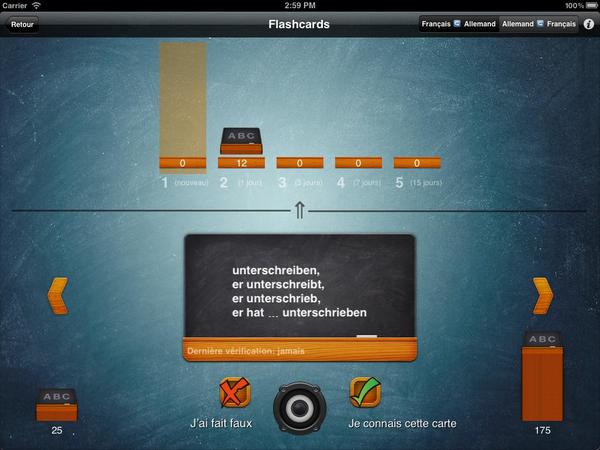New memory-boosting software for the start of the school year!

"We came up with the idea of proposing a good learning tool for compulsory education in Switzerland.” © 2012 Lorin Cuendet
How to accelerate the learning process? Discover the news report of the Radio Télévision Suisse in which Jean-Philippe Pellet of the EPFL's School of Computer and Communication Sciences explains how Wizbee can help pupils.
A new software application based on the forgetting curve, Wizbee makes it easier for pupils to learn, especially items that need to be memorized. Students learn by playing, which accelerates the learning process and motivates even the most recalcitrant pupils.
Jean-Philippe Pellet, how did the Wizbee project come about?
Two years ago, after we graduated from the EPFL, Thomas Lochmatter, Sébastien Cuendet and I came up with the idea of proposing a good teaching tool for compulsory education in Switzerland. We had heard many school teachers talk about how IT tools were not being used enough in the classroom because of their complexity, their age, and the lack of compatibility with certain software and the great disparity. Since most educational software used in Switzerland comes from other countries, we thought that an easy-to-use software application that was visually pleasing and adapted to local study plans would be quite useful.
How does Wizbee work?
Each of our learners has an account that keeps track of their learning progress (e.g. the exercises completed, success rates, level of familiarity with vocabulary words). Learning progress data are synchronised across all machines used by learners so that they are always up-to-date.
 Many of the exercises include dynamic content, which is randomly generated each time an exercise is done. Here is where we integrate the principles of the forgetting curve and spaced repetition. When learning vocabulary, for instance, the most challenging words are practiced more frequently (e.g. in the form of flashcards) while the less challenging ones are repeated at longer intervals.
Many of the exercises include dynamic content, which is randomly generated each time an exercise is done. Here is where we integrate the principles of the forgetting curve and spaced repetition. When learning vocabulary, for instance, the most challenging words are practiced more frequently (e.g. in the form of flashcards) while the less challenging ones are repeated at longer intervals.
The software also includes several fun exercises that enable pupils to learn a language while under the impression that they are playing. In addition to developing their writing skills, pupils also develop an ear for the language by listening to how words are pronounced. Besides the language exercises, Wizbee also offers maths activities.
Have you already obtained any results (tests in the classrooms)?
The classes that use the software (over 450 in the French- and German-speaking regions of Switzerland) have given us very positive feedback and have asked for more. Many parents also wrote to us to say how much fun their kids had using Wizbee at home. It is difficult to quantify the extent to which the software application truly aids the learning process but teachers have assured us that they have noticed a difference. I think that three factors come into play. First, pupils enjoy using a different means of learning, which increases their level of motivation. Second, the software introduces variety in the learning process, which has been shown to be efficient from a pedagogical standpoint. Finally, each pupil is able to progress at his/her own rhythm, with exercises generated according to individual profiles. This relieves the burden on teachers, who no longer have to keep the more advanced students waiting or stress slower learners.
Can EPFL students benefit by using this software?
Yes they can, particularly as far as language learning is concerned. The EPFL is full of people who would like to learn a new language or improve one they already know. For the moment, we do not yet have a module for French as a foreign language but we could rapidly develop one if the need arises.
Watch the report on RTS
Download Wizbee
Applications for iPad and iPhone